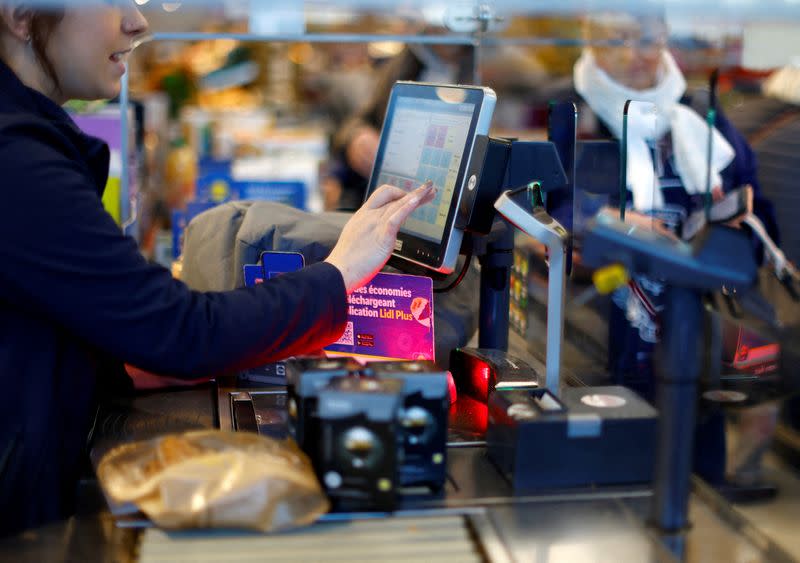France leans on retailers to help consumers cope with food prices

By Dominique Vidalon
PARIS (Reuters) -France's finance minister urged food retailers on Monday to do more to help consumers cope with high prices, as the government leans on them to agree to sell an anti-inflation basket of everyday essential goods at knockdown prices.
"The rise in food prices is a major concern and everyone must take its share, including retailers," Bruno Le Maire told RTL radio.
"The state must do its share but retailers must also do more," he added.
The government wants big retail chains such as Carrefour, Casino and the family-owned grocery dynasties Auchan and E. Leclerc, to sell a basket of about 50 everyday items at purchasing price from next month.
However, only smaller chains such as discounter Lidl and Systeme U, which launched its own action plan covering 150 private label products earlier this month, have agreed to the government initiative, which is not mandatory.
Some retailers such as Carrefour say they have already taken action by blocking prices on a set number of goods.
Others, including Auchan, have since responded by launching their own initiatives, saying there was a need to focus the basket more on fresh products such as meat, fish, fruits and vegetables.
The INSEE official statistics agency forecast last week that food price inflation would remain at 13% through the first half of the year.
Food prices were expected to become a bigger driver in the coming months of overall inflation, which was forecast nonetheless to ease from 6.0% in January to 5.0% by June.
The finance ministry conducted an investigation into food retailers' margins last year, but did not find evidence of price gouging.
(Reporting by Dominique Vidalon; Additional reporting by Leigh Thomas; Editing by Sudip Kar-Gupta, Tassilo Hummel and Shounak Dasgupta)

 Yahoo Finance
Yahoo Finance 